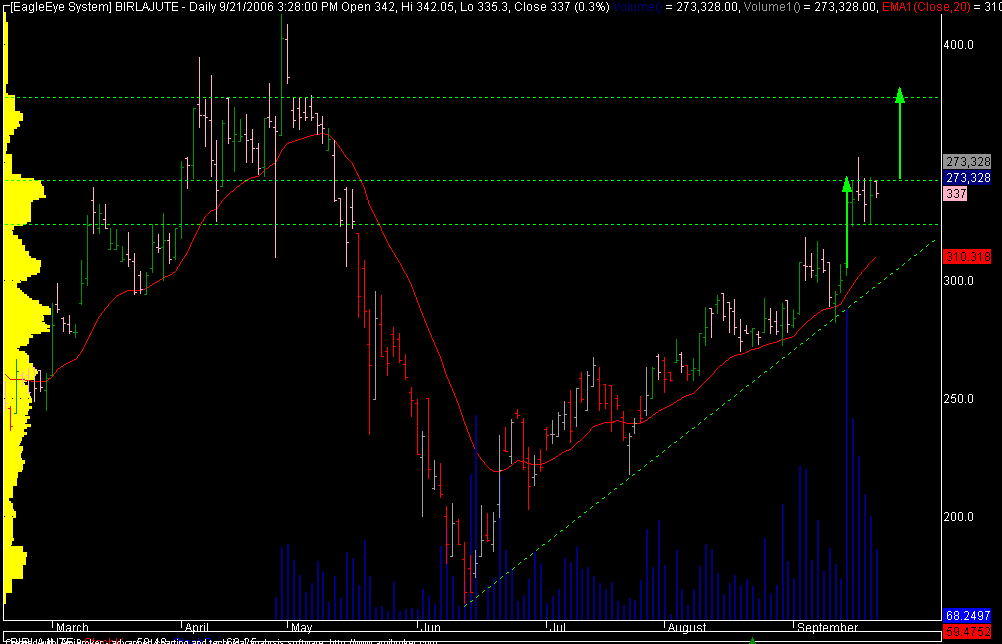Sunday, September 24, 2006
Saturday, September 23, 2006
Buying on Bad News - Acquiring Undervalued Stock
 Even the best companies, industries, and sectors fall out of favor from time to time. A fully-informed investor, with a pocket full of cash and a firm understanding of the situation, can calmly stride into a turbulent market and buy up shares of these underdogs at a fraction of their intrinsic value. How do you know which companies are permanent losers and which are undervalued gems? Use these tests of quality to determine if you should invest your money or keep it stashed in cash.
Even the best companies, industries, and sectors fall out of favor from time to time. A fully-informed investor, with a pocket full of cash and a firm understanding of the situation, can calmly stride into a turbulent market and buy up shares of these underdogs at a fraction of their intrinsic value. How do you know which companies are permanent losers and which are undervalued gems? Use these tests of quality to determine if you should invest your money or keep it stashed in cash.Is the problem temporary or long-term?
You must be careful not to simply invest in a company because everyone else is running from it; sometimes there is reason to run! Even after the share prices of companies such as Lucent and United Airlines had been cut by seventy-five percent, they still did not constitute a good investment. There are many companies that aren't worth buying at any price. Trash is trash, regardless of how much you pay for it.In some cases, problems arise that are the result of one-time mistakes on the part of management. During the Savings and Loan crisis, for example, bank stocks were beaten down to almost comical levels. An investor who mentioned he was purchasing shares of these institutions was immediately scorned, mocked, and considered crazy by even close friends. At the same time, firmly entrenched companies such as Wells Fargo (which boasted a solid balance sheet, established reputation, top-notch management, and steady customer base), were hit just as hard as banks of lesser quality. Years later, those that had exercised courage and relied on their analytical judgment by purchasing shares in such banks found their portfolios much fatter. Remember the words of a very wise man; "you are neither right nor wrong because the crowd agrees with you; you are right because your analysis says so."
Is the business an excellent business with a suitable market capitalization?
As always, you should be interested in non-asset intensive businesses with high returns on equity, little or no debt, operating in non-commodity type industries without fixed cost structures. You should also attempt to look for under valuation in larger rather than smaller companies. In the event of a retail recovery, for example, Wal-Mart is more likely to recover sooner than a small specialty retailer such as Tuesday Morning. The owner of smaller issues may find himself waiting considerably longer for his shares to realize their full value in the market
Does management have an excellent track record?
The best indicator of future performance is past results. Great management tends to produce great results for everyone involved, including the shareholders, employees, directors, executives, and customers. If a company has encountered significant problems for consecutive years while the industry in which it operates prospers, it is likely that management has been unwisely retained. In such cases, you and your pocketbook would be better off ignoring the empty promises of executives who are only interested in keeping their jobs.
Are you financially able to wait out the storm?
After you've determined that the problem is temporary, management has an excellent track record, and the business possesses excellent economics, there is still one question remaining before you take out your checkbook and purchase a seemingly undervalued stock. Are you financially able to wait out the company's troubles? What are the odds that you will be forced to sell your stock to meet another obligation?If there is even the slightest chance of a forced sale due to a personal need for cash, don't even think about buying the stock. "But it's a wonderful investment opportunity!" you may protest. Yes, it may turn out to be one of the best investments of your life. However, if you do not have the luxury of waiting for the company's intrinsic value to be reflected in the share price, you are gambling. As investors, we know that a good company will eventually be recognized by the market; we don't know when. The moment you fail to make that distinction, you become a speculator. In the short run, anything can happen. There is nothing to stop an undervalued stock from falling significantly further in price. You must have the time to wait for the inevitable result of wise investing, regardless of whether it takes a week, month, or several years. In the end, your sound analytical judgment and unshakable patience should be handsomely rewarded.
.
Friday, September 22, 2006
Subscribe to:
Comments (Atom)

